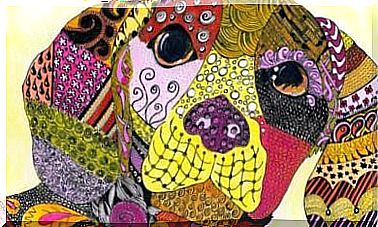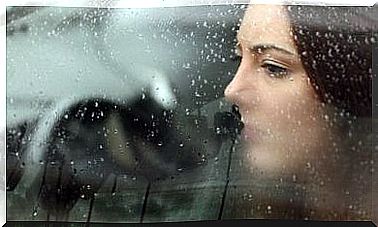Crisis Fatigue: When Reality Takes Over

The fatigue from the crisis ( crisis fatigue ) is now a reality. More than a trending term or a hashtag in social networks, it is a concrete fact. It is the sensation experienced by a large part of the population living in a context of uncertainty, change, stress and fear. Fatigue, generalized physical pain, apathy, etc.
Psychiatrists and psychologists clarify that, although it cannot yet be defined as a clinical disorder, it is necessary to evaluate its course over time. We are undoubtedly facing a completely new situation worldwide: the health and social crisis. Expecting new mental disorders in such a context is understandable and even predictable. This is the case with crisis fatigue .
We are all exposed to unpredictable, burdensome and often harmful events, so it is completely normal to feel overwhelmed. However, things get complicated when the person already has a mental health problem.

Crisis fatigue: what does it consist of?
Arianna Galligher, director of the STAR (Stress, Trauma and Resilience) program at Ohio State University, highlights an interesting fact. We are all used to facing crises, but the current one is very different. To put it simply: it is a great crisis that encompasses multiple crises. A kaleidoscope of challenges in which the thought of the present and the future can overwhelm, oppress or immobilize us.
Crisis fatigue is configured as a phenomenon in which the mind and body try to adapt to an environmental event that disproportionately accelerates the natural response to stress. The release of adrenaline and cortisol is continuous and excessive, that is, it is not limited to a specific moment, to a specific danger to defend against. Reality is filled with small (or large) threats and this translates into a whole series of manifestations.
What are the symptoms of seizure fatigue?
Symptoms of this disorder can vary from one person to another. Nevertheless, some common elements among the most recurrent can be noted. They are:
- Hyper arousal. It manifests itself with marked nervousness and greater anxiety than normal. There is a short temper, a bad mood and the need to do something, act and react (but without knowing how to do it).
- Withdrawal. In the second phase, we pass from hyperactivity to apathy, listlessness and a state in which the environment is perceived as almost unreal. There are also mental blocks, difficulty concentrating, the feeling of not knowing how to react to events and not having the strength to solve everyday problems.
- Persistent physical exhaustion.
- Fear, constant negativity, anguish.
- Sleep disturbances : ranging from insomnia to excessive sleepiness.
- Changes in eating habits. The person tends to eat poorly and may even overindulge in alcohol or junk food.
- In the most extreme cases of crisis fatigue, impactful behavioral changes can even occur, such as neglecting work or family.
What could be the cause of this disorder?
There are many reasons that could explain crisis fatigue. We have already talked about the first, that is to live a contingent reality in which there is not a single threat or challenge, but a multitude of insecurities that can lead us to exhaustion. Added to this is the lack of certainty about the end of this situation.
- Some psychological mechanisms, such as the coping strategy, tend to weaken in this situation, so you can no longer be strong and you reach a limit in which you no longer know how to react or what to do.
- The continuous release of cortisol, the stress hormone, causes numerous and dangerous effects : tachycardia, muscle pain, fatigue, headache, hypertension.
- From an emotional point of view, however, one lives in fear and negativity. Often, excessive exposure to the media or pressure from the immediate environment can intensify the feeling of exhaustion and helplessness.

Strategies to be applied to combat crisis fatigue
In the psychological field, it is clear that when the situation stabilizes and the necessary normality is restored (in some way), the next step will be to flatten the mental health curve. The rise in depression and anxiety disorders during this time is alarming.
Nor can people with past psychological disorders be neglected: subjects with borderline personality disorders, schizophrenia, bipolar disorder… We are experiencing a period of great difficulty in this sector.
At this moment we need concrete strategies and the support of local services to detect and prevent problems promptly. Regarding crisis fatigue, the following strategies could be considered:
- Take better care of your life habits : follow healthy habits, take care of hygiene and follow safety measures, take care of nutrition and set priorities. It is essential.
- Being able to rely on a support network, be it friends or family. It is important to avoid feeling alone, but it is useful to share thoughts and words with a loved one.
- Seek professional help when we feel the need.
Keeping hope alive, developing new strategies for coping with stress and managing emotions are other essential aspects to work on. However, it is good to remember that these reactions are completely normal. Feeling sick, fearful or helpless is absolutely predictable during this time. Do not hesitate to seek the right support to better face this complex reality.









